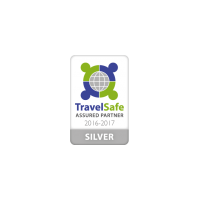Anti-Radicalisation Policy
WHG is committed to shielding students from radicalisation. This policy will offer guidance for staff and homestays to spot the signs and behaviours which may mean students are being influenced and are at risk of being radicalised.
This policy was written with reference to the following national guidance
- The Prevent duty Departmental advice for schools and childcare providers https://assets.publishing.service.gov.uk/government/uploads/system/uploads/attachment_data/file/439598/prevent-duty-departmental-advice-v6.pdf
- Keeping Children Safe in Education 2022 https://assets.publishing.service.gov.uk/government/uploads/system/uploads/attachment_data/file/1101454/Keeping_children_safe_in_education_2022.pdf
- Channel Duty Guidance – Protecting people vulnerable to being drawn into terrorism https://assets.publishing.service.gov.uk/government/uploads/system/uploads/attachment_data/file/964567/6.6271_HO_HMG_Channel_Duty_Guidance_v14_Web.pdf
About Radicalisation
Protecting children from the risk of radicalisation should be seen as part of schools’ homestays, guardians and childcare providers’ wider safeguarding duties and is similar in nature to protecting children from other harms (e.g., drugs, gangs, neglect, sexual exploitation), whether these come from within their family or are the product of outside influences.
The general risks affecting children and young people may vary from area to area, and according to their age. Local Guardians are in an important position to identify risks within a given local context.
It is important that WHG understand these risks so that we can respond in an appropriate and proportionate way. At the same time WHG should be aware of the increased risk of online radicalisation.
It is essential that staff are aware and can identify students that may be vulnerable to radicalisation and know what to do once they have been identified. If you note any of the following behaviours
- Becoming withdrawn and isolating themselves from family and friends
- Inability or unwillingness to discuss their views or opinions
- A change in attitude which is disrespectful towards others
- Increased levels of anger
- Secretiveness, especially regarding internet use
- Being at a transitional phase in life
- Having a need to find an identity, belonging, status or excitement
- Being susceptible to being:
- influenced
- controlled
- wanting to dominate others
- Feeling a sense of grievance, injustice or being under threat
- Having an emotional desire for political or moral change
- Having mental health related issues
- Being secretive about social networking contacts
In Prevent priority areas, the local authority will have a Prevent lead who can also provide support. WHG may also contact the Police to gain professional advice, if needed.
Early intervention is key to protecting a vulnerable student, we therefore ask concerns to be raised immediately.
What to do if you suspect a student of radicalisation?
Your first step is to contact either Peggotty Moore or Will Hume +44 3 458 686 688 (24 hours a day / 7 days a week)
Both Peggotty and Will have undertaken PREVENT training, to assist you and students: https://www.highspeedtraining.co.uk/courses/safeguarding/preventing-radicalisation-and-extremism-training/
The first step would be to conduct a risk assessment on the student and their environment to understand any potential threats to the student’s welfare and surrounding influences.
If it is deemed that a student has been exposed to extremist views, we will make a referral to Prevent on +44 800 011 3764.
Our safeguarding procedures outlined in our Safeguarding Policy will also be referred to, making sure that the student is protected, and a referral may be made to the Local Safeguarding Partnership for Early Help.
This policy should be read alongside the following other policies & handbook:
Policy Updated
10thOctober 2025
Policy Review Date
1stOctober 2026






